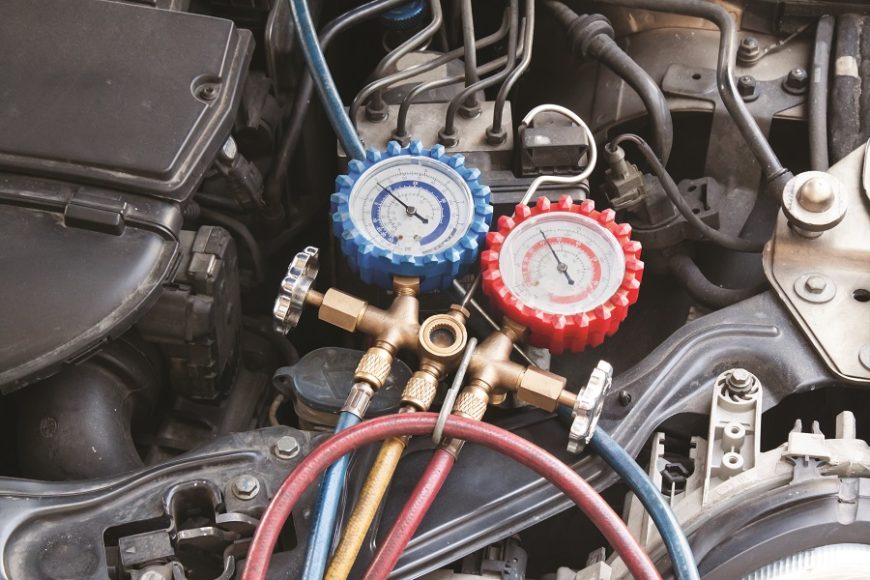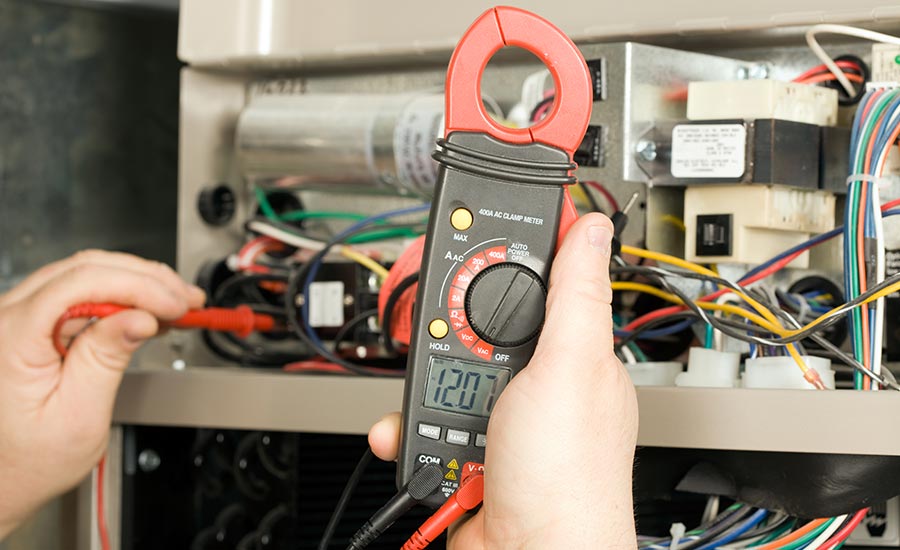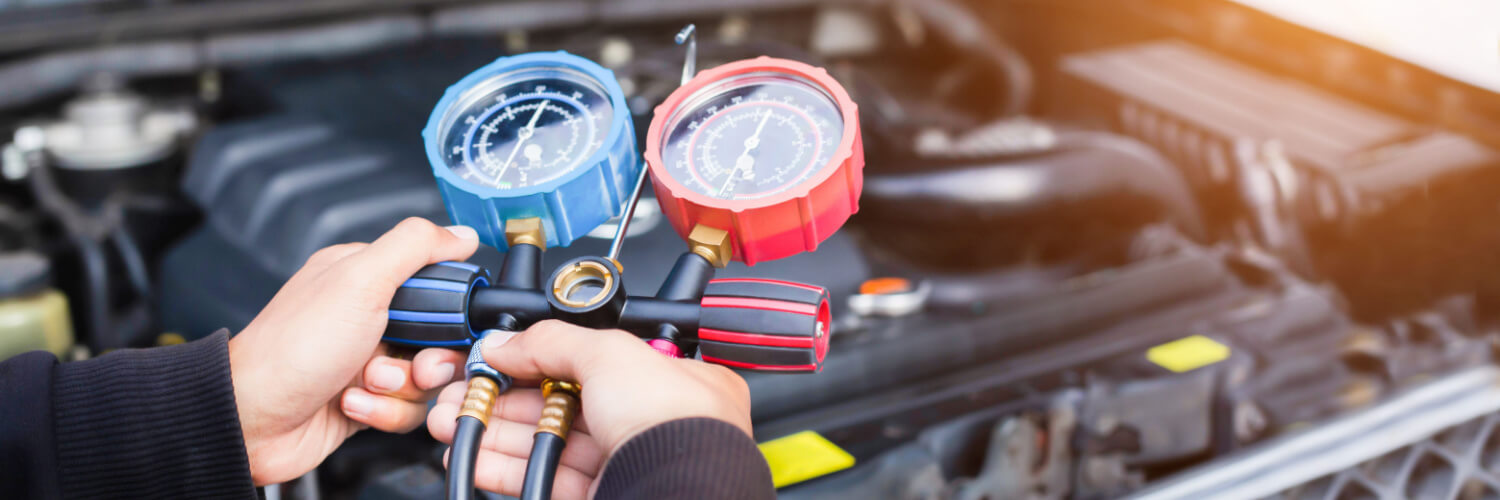When the weather heats up, few things are more essential for comfort than a properly functioning air conditioning (AC) system in your car. However, like any mechanical component, AC systems can encounter issues that affect their performance. From weak airflow to strange noises or unpleasant odors, diagnosing and fixing AC problems promptly is crucial to ensure a comfortable and enjoyable driving experience. In this comprehensive guide, we’ll explore common air conditioning system issues, their potential causes, and practical solutions for diagnosing and fixing them.
Common Air Conditioning System Issues:
- Weak or Insufficient Cooling: One of the most common AC problems is weak or insufficient cooling. You may notice that the air blowing from the vents is not as cold as it should be, or it takes longer than usual to cool down the interior of the vehicle.
- No Cold Air: In some cases, the AC system may fail to produce any cold air at all. When you turn on the AC, you may feel warm or ambient temperature air coming from the vents instead of cold air.
- Intermittent Cooling: The AC system may work intermittently, cooling the interior of the vehicle inconsistently or shutting off unexpectedly after a period of operation.
- Unusual Noises: Strange noises such as squealing, grinding, rattling, or hissing coming from the AC system can indicate underlying issues with the compressor, blower motor, or other components.
- Foul Odors: Unpleasant odors emanating from the vents when the AC is running can be caused by mold, mildew, or bacterial growth within the AC system.
- Leaking Refrigerant: Refrigerant leaks can occur due to damaged hoses, seals, or components, leading to a loss of cooling capacity and potential damage to the AC system.
- Frozen Evaporator Coil: A frozen evaporator coil can result from restricted airflow, low refrigerant levels, or other issues, causing the AC system to malfunction and produce warm air.
Diagnosing Air Conditioning System Issues:

- Check Airflow: Start by checking the airflow from the vents. If the airflow is weak or inconsistent, it may indicate issues with the blower motor, cabin air filter, or ductwork.
- Inspect Refrigerant Levels: Use a refrigerant pressure gauge to check the refrigerant levels in the AC system. Low refrigerant levels can indicate a leak or other issues that need to be addressed.
- Listen for Unusual Noises: Turn on the AC system and listen for any unusual noises coming from the compressor, blower motor, or other components. Unusual noises can help pinpoint the source of the problem.
- Check for Leaks: Inspect the AC system for signs of refrigerant leaks, such as oily residue around hoses, fittings, or components. Use a UV dye or leak detection kit to identify leaks more effectively.
- Inspect Evaporator Coil: Check the evaporator coil for signs of ice or frost buildup, which can indicate restricted airflow or low refrigerant levels.
- Inspect Cabin Air Filter: Remove and inspect the cabin air filter for dirt, debris, or clogs that may restrict airflow and affect AC performance.
- Test Electrical Components: Test electrical components such as the compressor clutch, blower motor, relays, and switches for proper operation using a multimeter or electrical test tool. Interested? Read more at the link: https://outdoorlogic.net/how-to-install-an-auto-spring-leveling-kit/
Fixing Air Conditioning System Issues:
- Recharge Refrigerant: If the AC system is low on refrigerant, recharge the system with the appropriate type and amount of refrigerant specified by the manufacturer.
- Repair Refrigerant Leaks: Locate and repair any refrigerant leaks using leak sealants, replacement hoses, or seals. Ensure proper evacuation and recharging of the system after repairs.
- Replace Cabin Air Filter: If the cabin air filter is dirty or clogged, replace it with a new filter to improve airflow and prevent contaminants from entering the AC system.
- Clean Evaporator Coil: If the evaporator coil is frozen or dirty, clean it using a foaming coil cleaner and a soft brush to remove dirt, debris, and mold buildup.
- Inspect and Repair Electrical Components: Inspect electrical components for signs of damage or wear and replace any faulty relays, switches, or wiring as needed.
- Check and Adjust Belt Tension: Inspect the AC compressor belt for proper tension and adjust or replace it if necessary to ensure proper operation.
- Address Mold and Odors: Use an AC cleaner or disinfectant to eliminate mold, mildew, and bacteria from the AC system and vents, and replace the cabin air filter to prevent odors.
Preventive Maintenance Tips:

To prevent air conditioning system issues and ensure optimal performance, follow these preventive maintenance tips:
- Regularly Service the AC System: Schedule regular AC system inspections and service intervals with a qualified mechanic to detect and address potential issues before they escalate.
- Keep the System Clean: Keep the exterior of the AC condenser and evaporator coils clean and free of debris to ensure proper heat exchange and cooling efficiency.
- Replace Filters Regularly: Replace the cabin air filter according to the manufacturer’s recommendations to maintain proper airflow and prevent contaminants from entering the AC system.
- Use the AC System Regularly: Run the AC system regularly, even during cooler months, to lubricate seals and prevent moisture buildup that can lead to mold and odors.
- Park in the Shade: Whenever possible, park your vehicle in the shade to reduce the workload on the AC system and minimize heat buildup inside the vehicle.
Diagnosing and fixing air conditioning system issues requires careful inspection, testing, and troubleshooting to identify the underlying causes and implement effective solutions. By understanding common AC system problems, following diagnostic procedures, and performing necessary repairs and maintenance, you can ensure your AC system operates smoothly and efficiently, providing cool comfort during hot weather. If you’re unable to diagnose or resolve AC issues on your own, don’t hesitate to seek assistance from a qualified mechanic or automotive professional to ensure proper diagnosis and repairs. Remember, proactive maintenance and prompt attention to AC system issues are key to maintaining a comfortable and enjoyable driving experience, no matter the weather.
